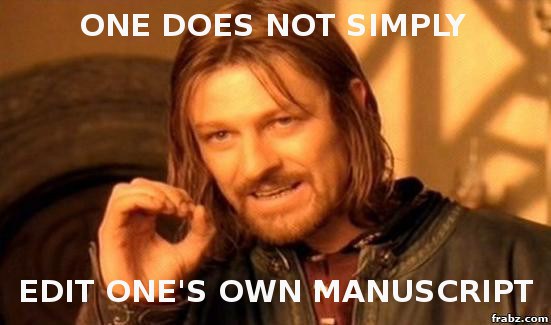Why would you bother getting professional help with your novel? You’ve been writing years, learning your craft, pumping out short stories to beat the band, even playing around with a few in the hope of developing one into a novel.
You’ve spent the last few years gaining invaluable experience, building your knowledge of the many tricks of the trade that might help lever your creation above the ever-expanding canopy of the writing world.
From feedback acquired from trusted family and friends, it’s obvious to you that you know what you’re at, and that it’s about time you put your main project out there – released to the world – your dream come true – a published author at last.
You’ve focused on those first three chapters, giving them the added polish you know they’ll need if they’re to garner sufficient attention from a busy agent or publisher. The synopsis is also laboured over, as is the blurb and query letter. Hard work, but well worth it, and though you’re something of a realist, you’re pretty confident your submission will hit the mark; sure to impress enough to elicit a positive response.
You send it off with fingers and toes crossed, hopeful, but also a tad nervous. It’ll take a while, but you’re willing to wait it out as you work on the rest of the manuscript. They’re going to want that, after all, so it’ll need to be in the best shape possible.
One day, during a break in rewriting, you take up a printed copy of your submission and decide to read through your favourite part, the section you’re positive will sell the whole package to the agent. You’re enjoying a nice cuppa as you read, feet up and chilled out. Then your blood runs cold when you notice not one, but two errors on the same line. Two! How in the name of all that’s divine could there be two errors, let alone one?
You put the cup down and move over to the window so the lack of light won’t have you fooled. A voice inside tells you it’ll be okay, that it was just a once-off, or a twice-off, but another, darker voice from somewhere deeper screams into your heart and soul when you pick a page at random and trip over a ‘too’ instead of a ‘to’. And it doesn’t end there. No, typos pop their ugly heads up on every page. Every page!
With clenched everything you acknowledge that you’ve gone and made a huge error, believing that your manuscript was ready-to-go, when it’s now blatant that it wasn’t even off its feet. Why, oh, why didn’t you send it to an editor? It’s not like there’s a shortage of them, what with so many freelancers about. Why in the hell did you believe your friends? Friends? What kind of friends would tell you your life’s work was fine – even great – when it so obviously wasn’t?
Of course, you know you can’t blame your family or friends. They’re the last people who want to hurt you with the awful truth that your darling book isn’t as good as you thought it was. Biting hard on your wounded pride, you take the first chapter to a writer you know, and more or less beg her to read over it and hit you with the truth. Three days later you get those pages back, each one dripping red ink. What the…? The writer, out of the goodness of her heart, has also included a brief report. The story is good, even solid, but there are issues: point-of-view, setting, pace, characterization, dramatic tension, not to mention grammar and punctuation.
You are dumbfounded, to put it mildly, but she hugs you and tells you there’s nothing uncommon about your situation. All work needs professional editing, even after being self-edited. She says that no matter how experienced a writer you are, you cannot depend on yourself as the ultimate sentinel, especially when you are so close to your project. She even tells you she suffered a similar experience, way back, but she doesn’t like to talk about it.
So you ask her to recommend a reliable freelance editor, and she advises you to get Googling – do your research to locate one who’ll suit you and your work – read testimonials from writers they’ve worked with, and avail of their free sample-edit offers.
Now you have something to give serious consideration to, and you’re adamant that you’re going to get the funds together to hire that professional editor you should’ve gone to in the first place. There’s a long road ahead, but now that you know where it leads, your heart is lighter and you don’t feel so bad about the silly schoolboy error you made.
The moral of this story? Don’t leave things to chance. Once you’ve brought your work-in-progress as far as you can, hunt out an editor that you can work with. It’ll be well worth it in the end, and your readers will thank you.
What’s your opinion? Do you believe writers should hire an editor before releasing or submitting their work? Leave your comment below.
